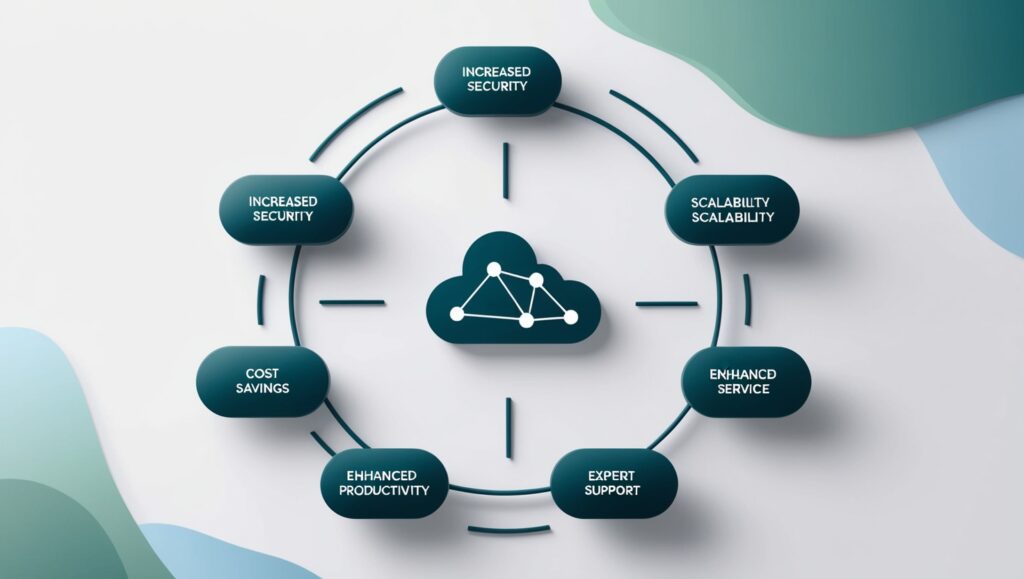
Businesses today face an unprecedented pace of technological change. Keeping systems updated, secure, and available 24/7 is no longer optional it’s mission critical. That’s why more organizations are turning to a Managed Service Provider (MSP) to outsource their IT needs. The advantages of doing so go far beyond simple cost reduction.
Whether you’re a growing startup or an established enterprise, partnering with an MSP can reshape how your company operates, protects data, and grows sustainably. Let’s explore the core managed service provider benefits that make this model essential in 2025.
Managed IT Services Miami: Expert IT Support for Your Business
Table of Contents
ToggleWhen Miami businesses seek it support Miami, they need a trusted partner that delivers consistently strong results. In the bustling local tech landscape, the best it companies in Miami stand out by combining deep technical expertise with responsive, personalized care. That’s where managed IT services in Miami become essential for driving growth, improving uptime, and lowering overall IT costs.
Miami’s leading managed service provider Miami specialists understand that it services in Miami must align with the fast pace and unique demands of urban business life. From small offices in Brickell to enterprises in Coral Gables, a proficientl list of it company Miami transforms routine IT tasks into smooth, seamless operations. Whether you’re looking for proactive monitoring, cybersecurity, or cloud management, it support in Miami teams ensure your systems stay reliable and secure.
One of the most immediate and impactful benefits of working with an MSP is cost predictability. Businesses no longer need to worry about unexpected IT expenses. With a fixed monthly rate, you can budget confidently and allocate resources to innovation rather than crisis response.
But this isn’t just about saving money. By outsourcing to an MSP, companies eliminate the overhead of hiring and training in house IT teams reducing salary costs, hardware purchases, and infrastructure investments. MSPs provide enterprise-grade tools and teams at a fraction of the price of internal operations.
Continuous monitoring and proactive problem prevention
MSPs are built for uptime. Their business depends on yours staying operational. That’s why most offer 24/7 monitoring to detect irregularities before they cause downtime.
Through predictive analytics and automated maintenance, issues like server overloads, security threats, and outdated software patches are identified and addressed before they impact your users. Ciegate offers reliable and customized IT services in Miami, helping local businesses streamline their technology operations with expert support and security.
This proactive approach reduces the frequency of emergencies, accelerates resolution time, and improves employee productivity.

Enhanced Cybersecurity and Regulatory Compliance:
As cyberattacks grow more sophisticated, the need for comprehensive IT security has never been more urgent. MSPs offer a full stack of cybersecurity solutions, including:
-
- Advanced firewall management
-
- Endpoint protection
-
- Threat detection and response
-
- Security awareness training
Beyond technology, MSPs help businesses navigate complex regulatory environments. Whether it’s HIPAA, SOC 2, PCI-DSS, or GDPR, a managed service provider ensures you meet compliance standards and avoid fines or breaches.
Scalability for Growing or Shifting Workforces
Businesses change and your IT infrastructure must adapt quickly. MSPs make scalability seamless. Whether you’re opening new locations, adopting hybrid work models, or deploying remote teams, an MSP can scale IT support up or down on demand.
They enable secure access to tools, files, and cloud systems from anywhere in the world, which is vital for distributed teams. Plus, MSPs standardize systems across devices, departments, and locations ensuring a cohesive and secure digital ecosystem as you expand.
Access to Specialized Talent and Innovation
MSPs give you access to a full team of IT specialists without the cost of hiring them in-house. From cloud engineers to cybersecurity analysts, you benefit from experts who stay current with the latest technologies, tools, and methodologies.
You also gain insights from previous client implementations, best practices across industries, and strategic consulting to ensure your IT aligns with business goals. This level of experience is difficult to match internally, especially for small and mid-sized companies.
Key Managed Service Provider Benefits at a Glance
Here’s a quick overview of the most important advantages MSPs deliver:
-
- Predictable monthly IT costs
-
- Reduced infrastructure investment
-
-
24/7 system monitoring and fast issue resolution
-
-
-
Stronger cybersecurity posture
-
-
-
Regulatory compliance support
-
-
-
Easy scalability for remote and hybrid work
-
-
-
On-demand access to IT specialists
-
-
-
Better focus on core business priorities
-